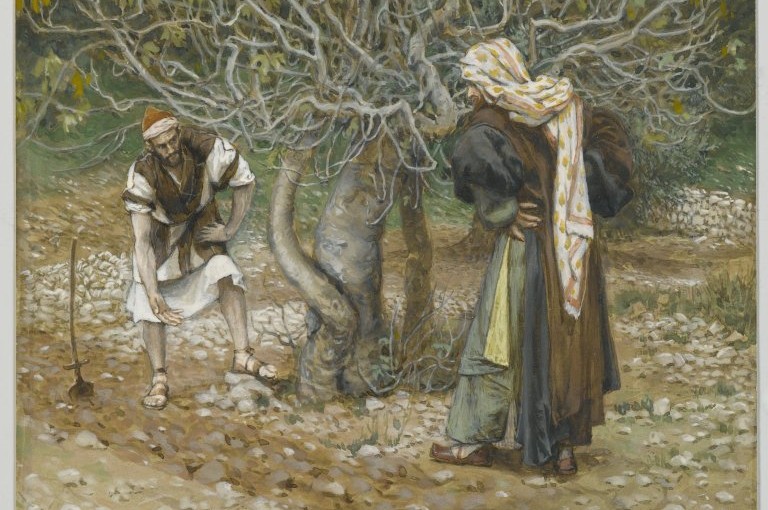God is extremely patient when it comes to extending mercy. That’s what Jesus is talking about in this rather odd parable. I have to admit that I’m no gardener: I’m just not patient enough for that! So I needed to do a little digging to get a real sense of where this parable is going. I discovered that there are a couple of things we should all know before we roll up our sleeves and dig in to this little story. First of all, fig trees actually did take three years to bear fruit. During those three years, of course, they would need to be nourished and watered and pruned and tended. It was a lot of work, so when those three years of hard work were up, you better believe the farmer certainly wanted fig newtons on his table! And the second piece of background is that, since the days of the prophet Micah, the fig tree has been a symbol for the nation of Israel, and Jesus’ hearers would have known that. So when they hear of a fruitless fig tree, it was a little bit of an accusation.
Conventional wisdom is that if the tree doesn’t bear fruit after three years of labor and throwing resources at it, you cut it down and plant a new one; why exhaust the nutrients of the soil? And if you’re an impatient gardener like me, why exhaust the gardener?! But this gardener is a patient one; he plans to give it another year and some extra TLC in hopes that it will bear fruit.
So here’s the important take-away: God is not like Father Pat; he’s the patient gardener! And we, the heirs to the promise to Israel, if we are found unfruitful, our Lord gives us extra time and TLC in order that we might have time to repent, take up the Gospel, and bear fruit for the kingdom of God. That’s kind of what Lent is all about.
But we have to remember: we don’t get forever; if we still don’t bear fruit when the end comes, then we will have lost the opportunity to be friends of God, and once cut down in death, we don’t have time to get serious about it. The time for repentance is now. The time for us to receive and share God’s grace is now. The time for us to live justly and work for the kingdom is now. Because we don’t know that there will be tomorrow; we can never be presumptuous of God’s mercy and grace.
The consolation, though is this: we don’t have to do it alone. The Psalmist today sings that our God is kind and merciful: We get the TLC that our Gardener offers; the grace of God and the gifts of the Holy Spirit. We can trust in the Lord God, our great “I AM,” to come to us and lead us out of captivity to sin just as he was preparing to do for the Israelites in the first reading today. We can put our trust in God’s mercy. We are always offered the grace of exodus, all we have to do is get started on the journey and begin once again to bear the fruit of our relationship with Christ.
